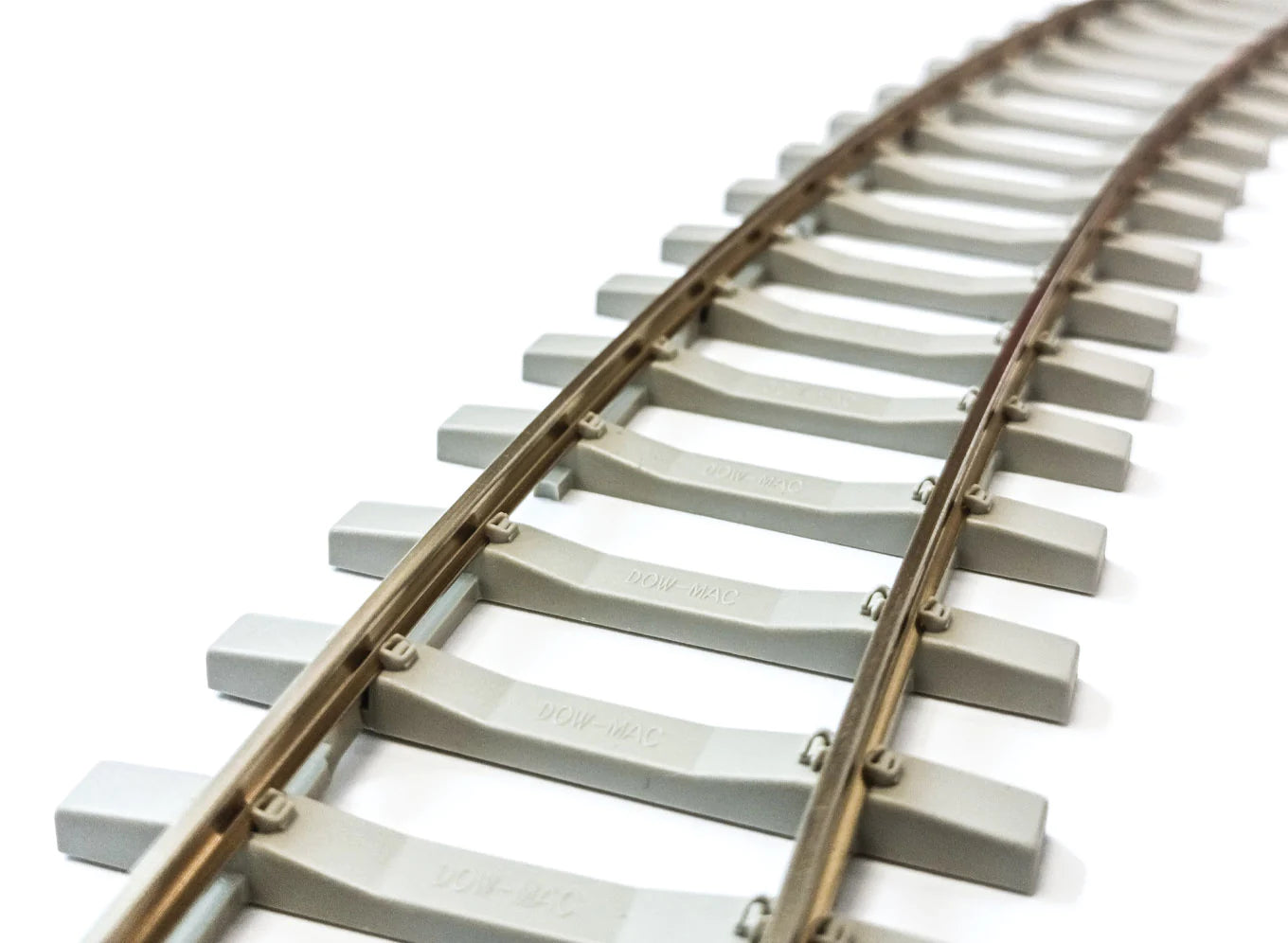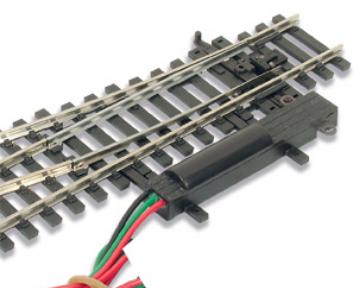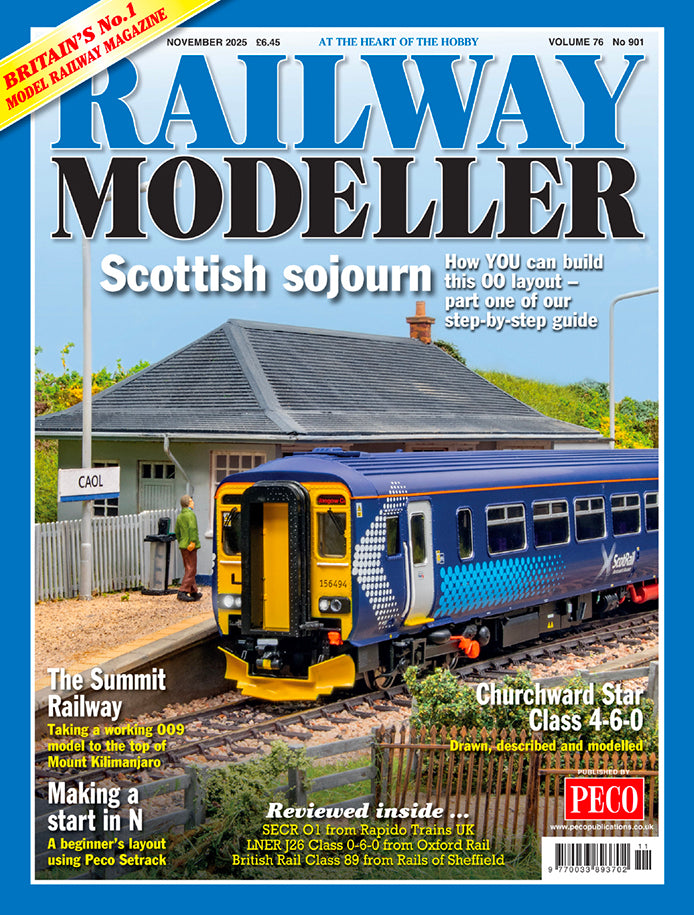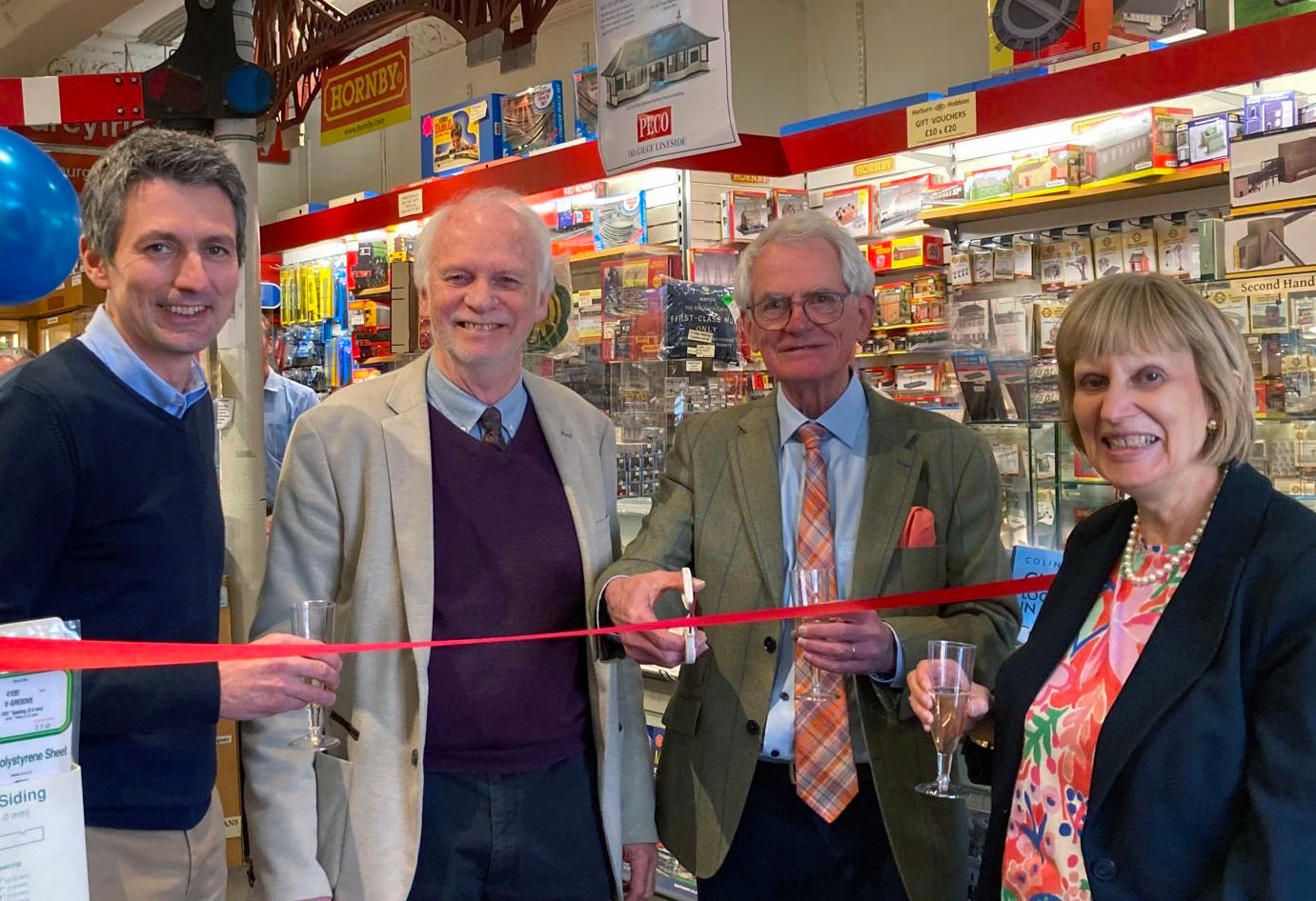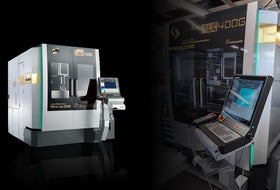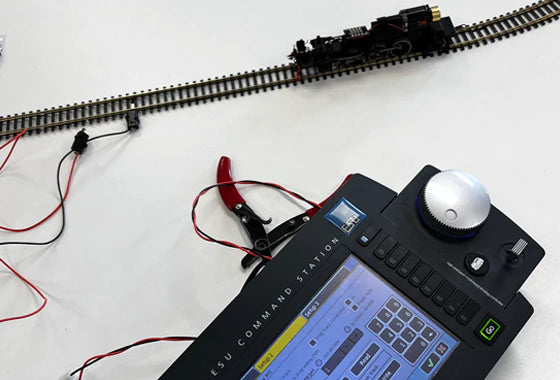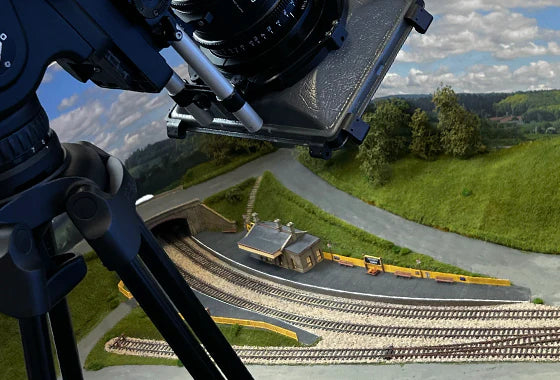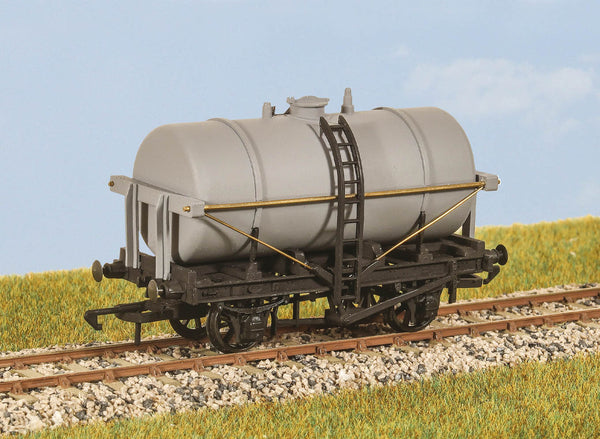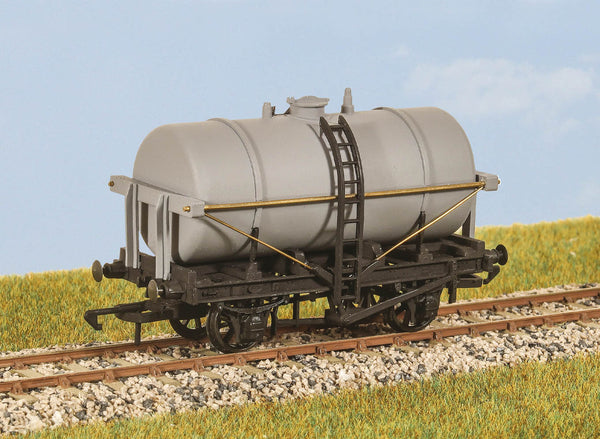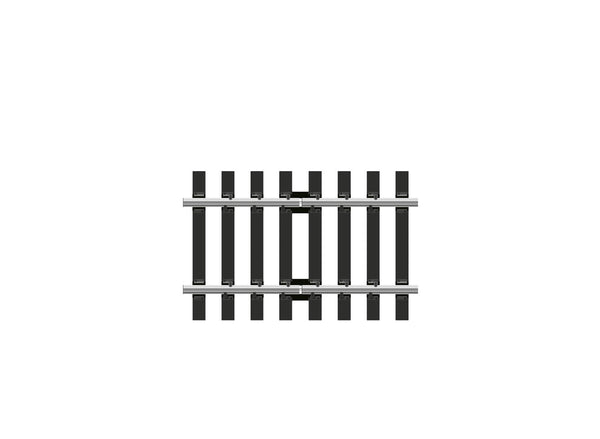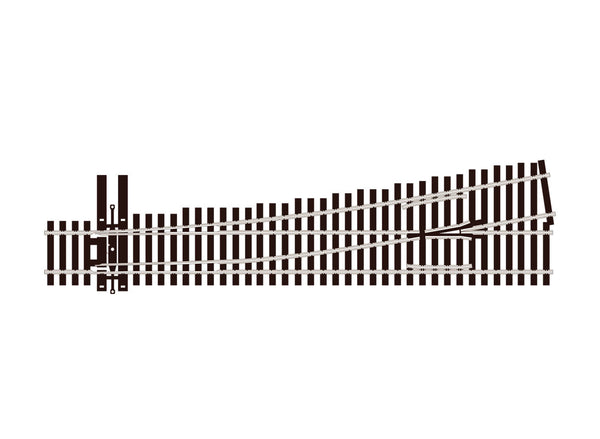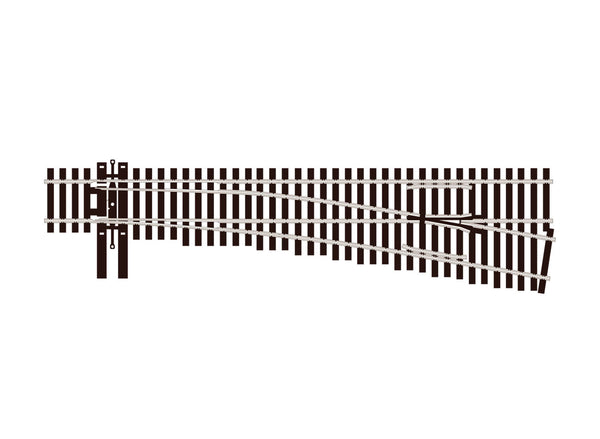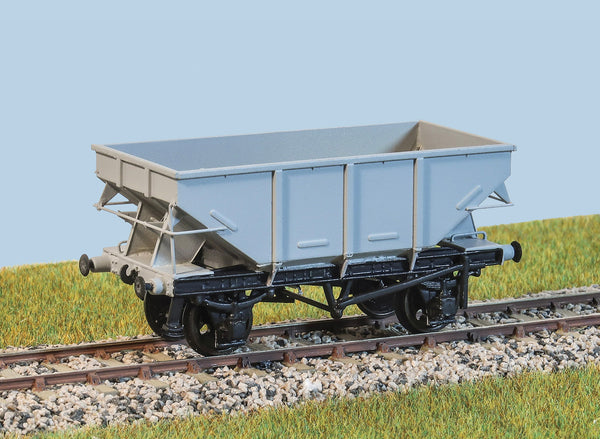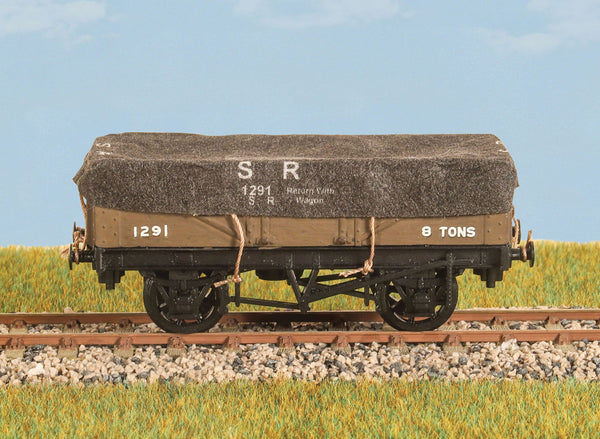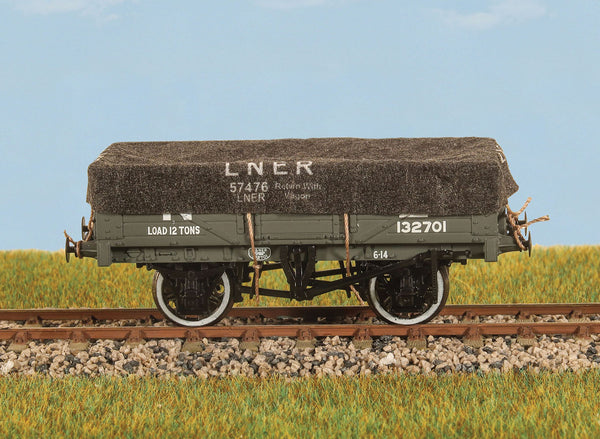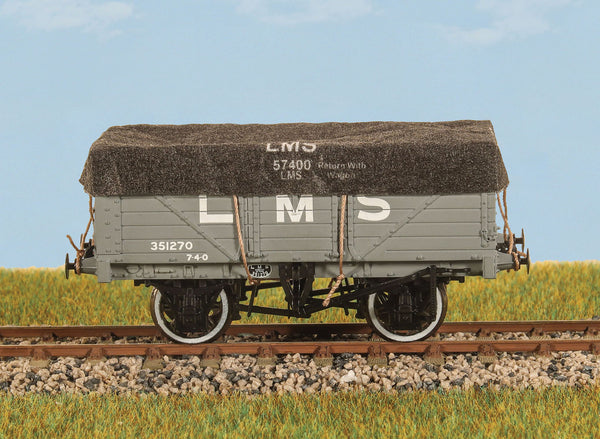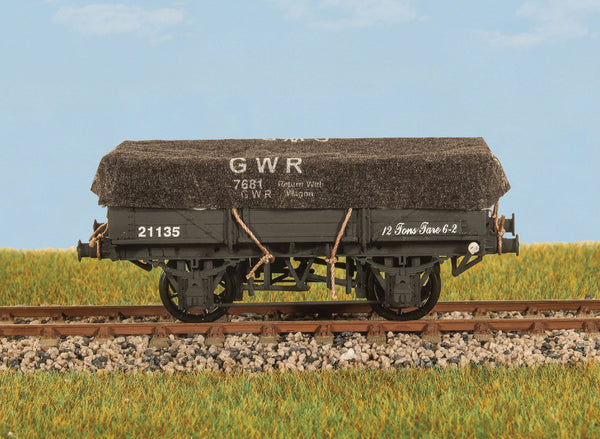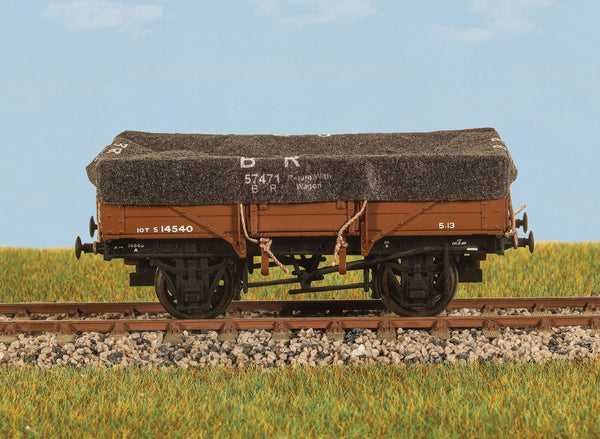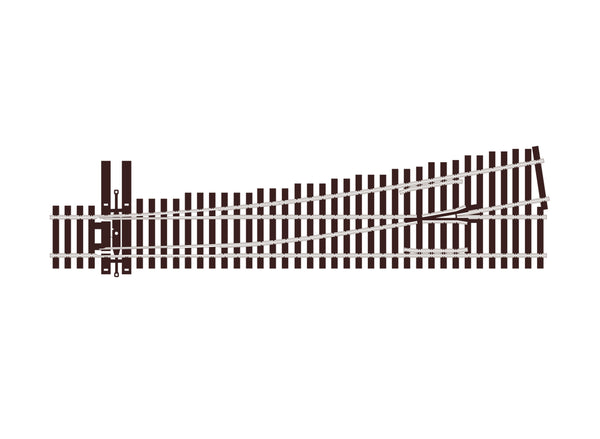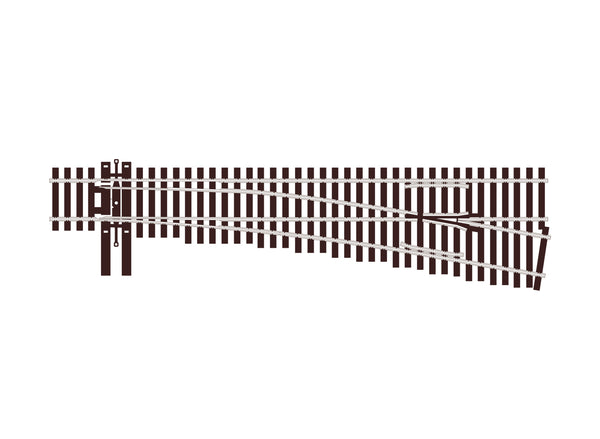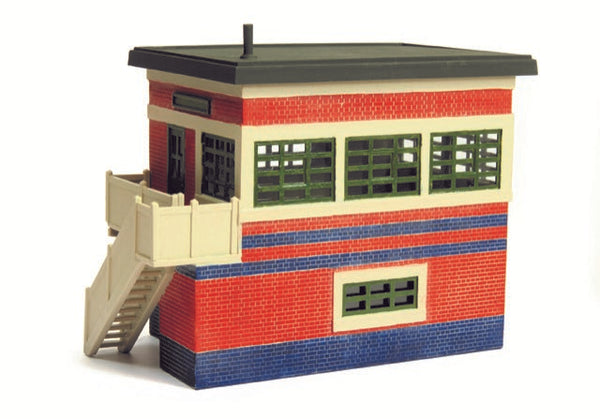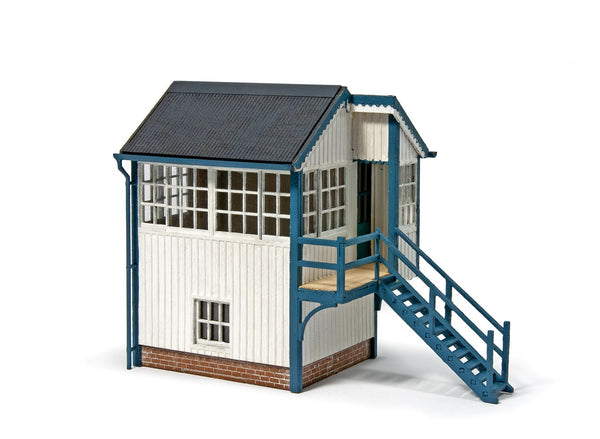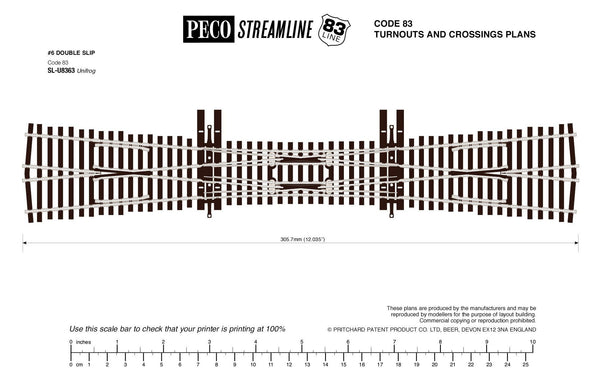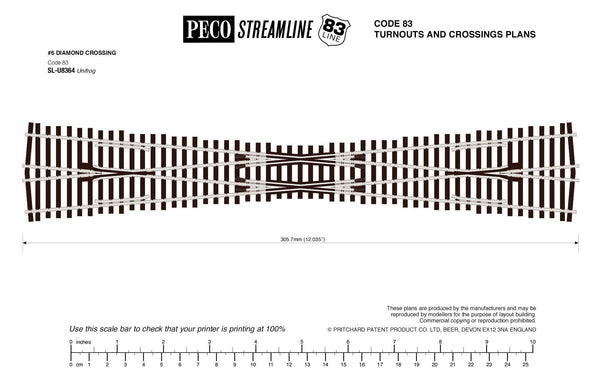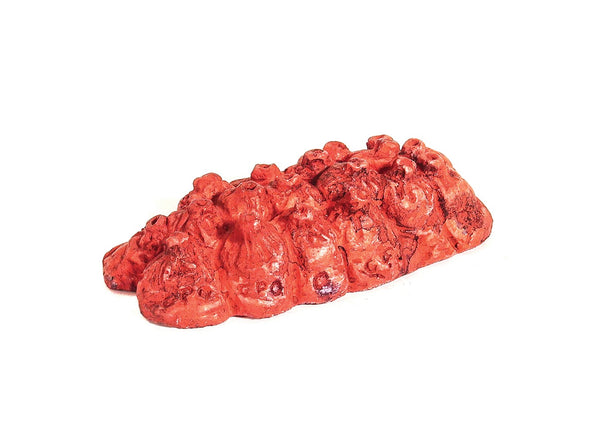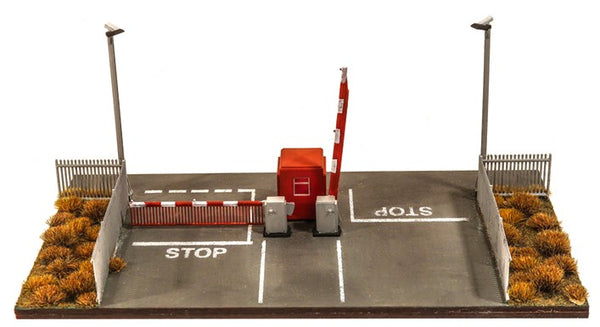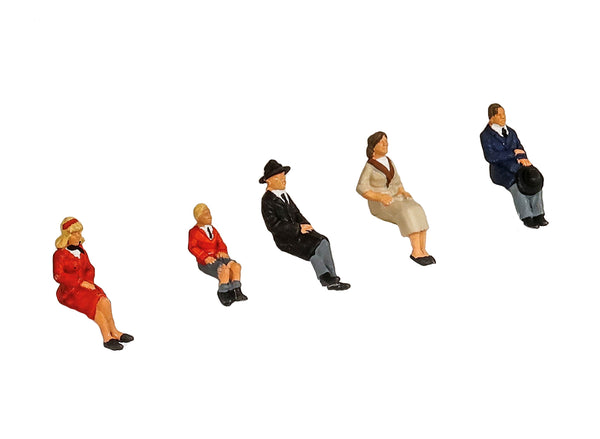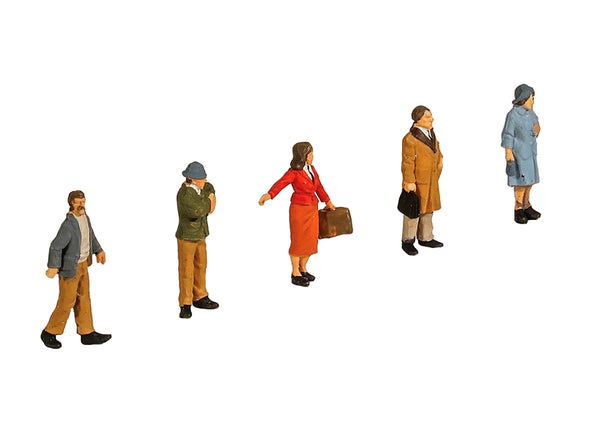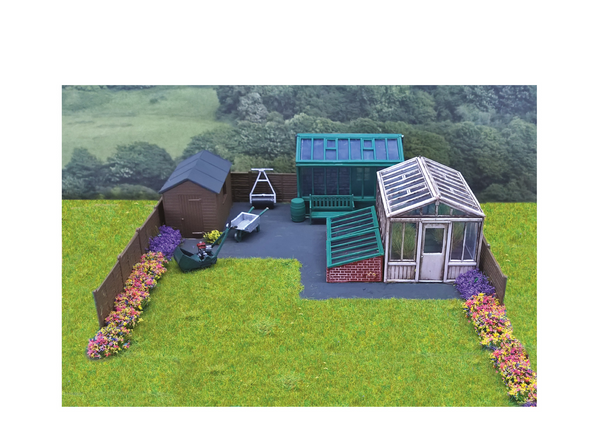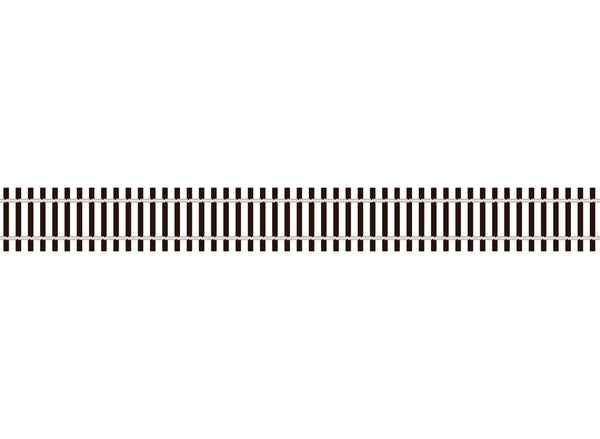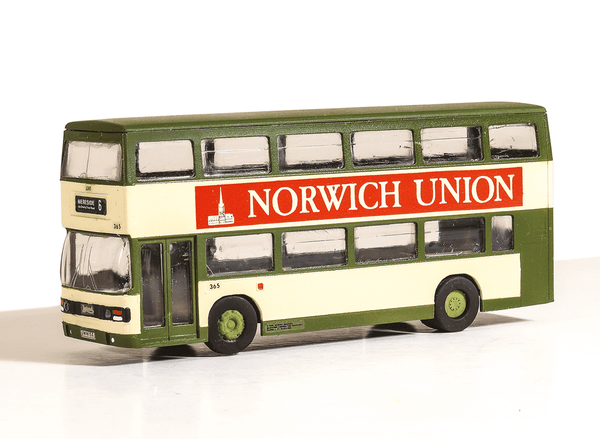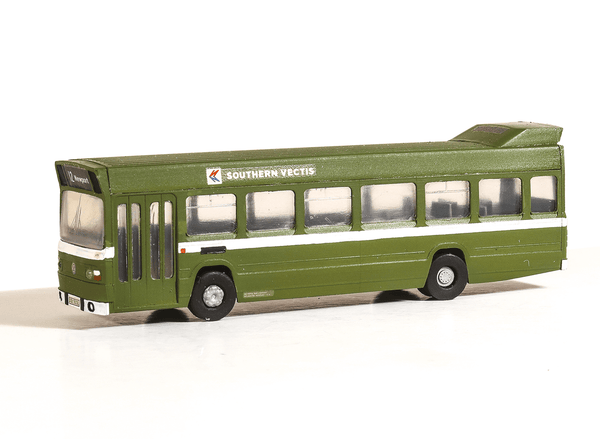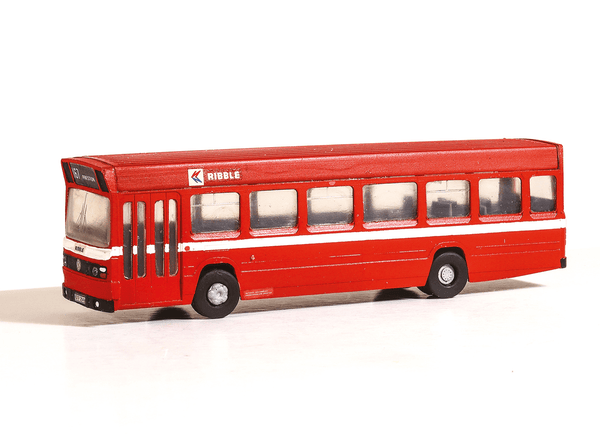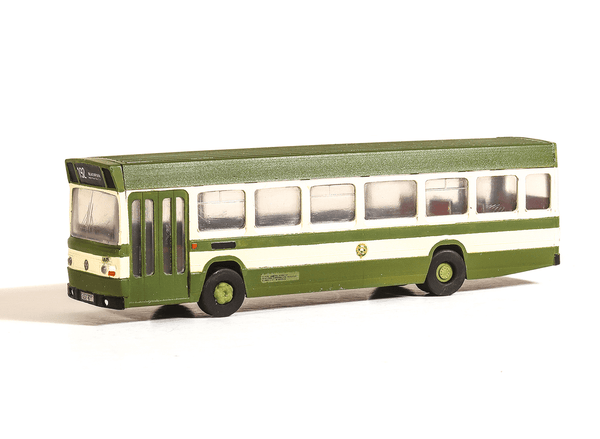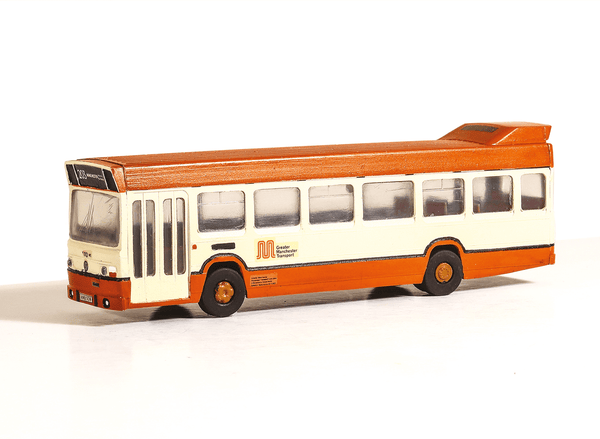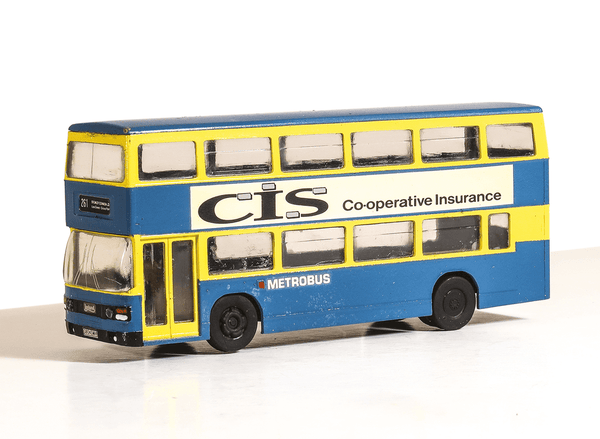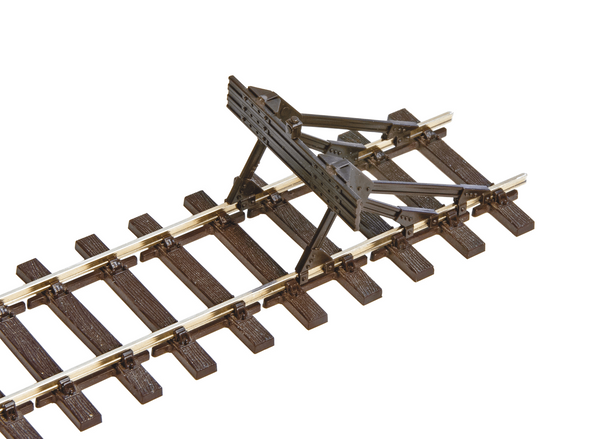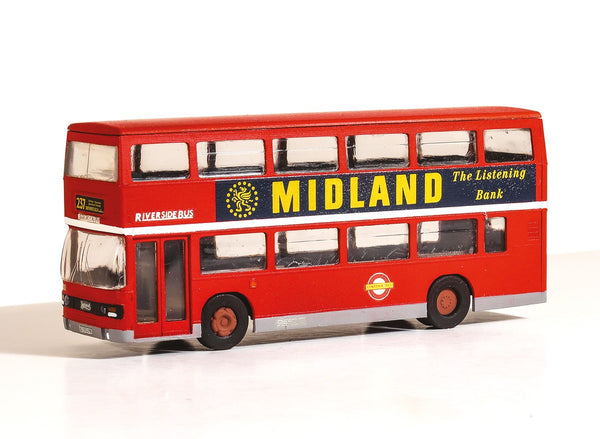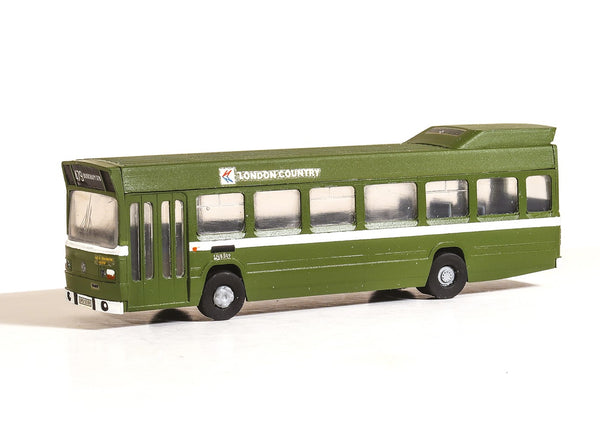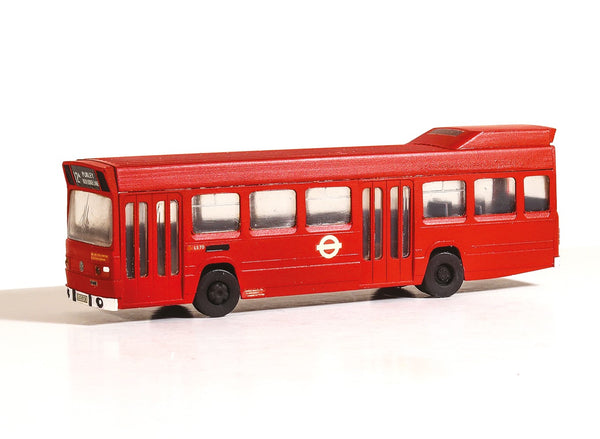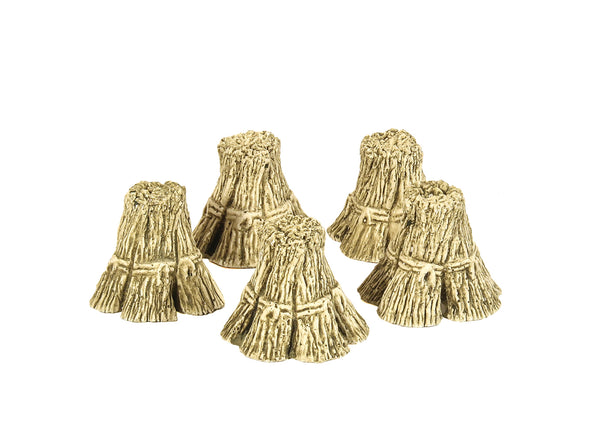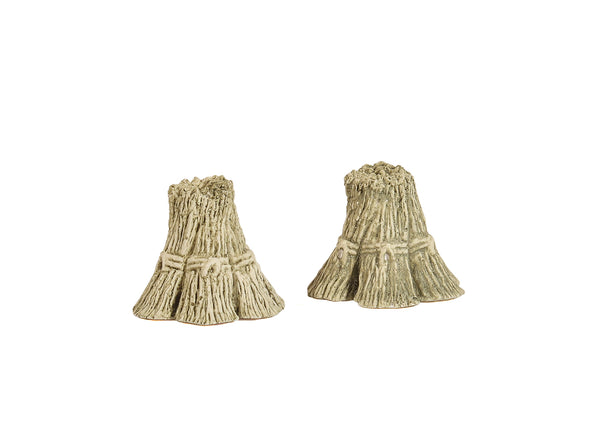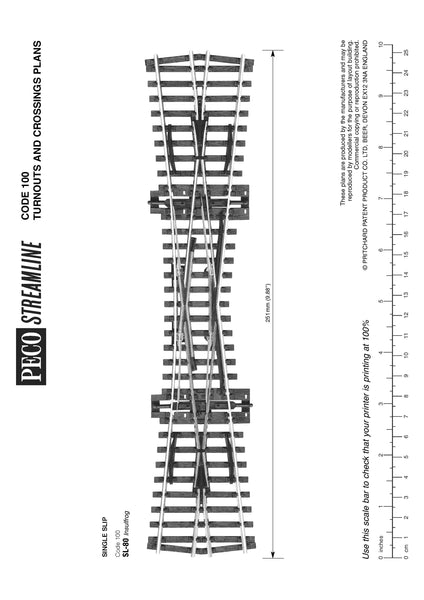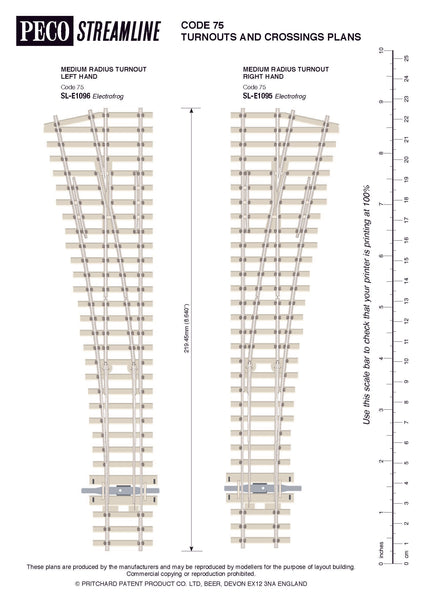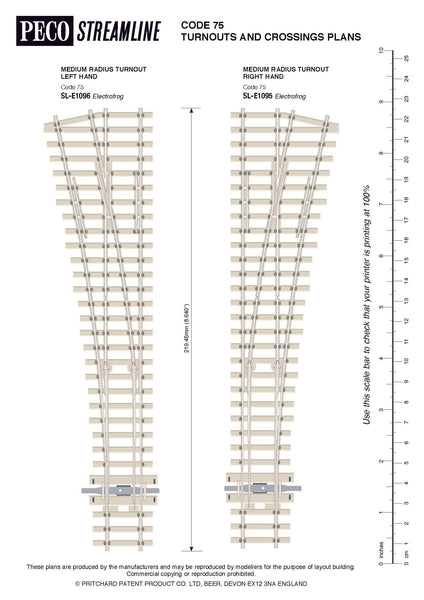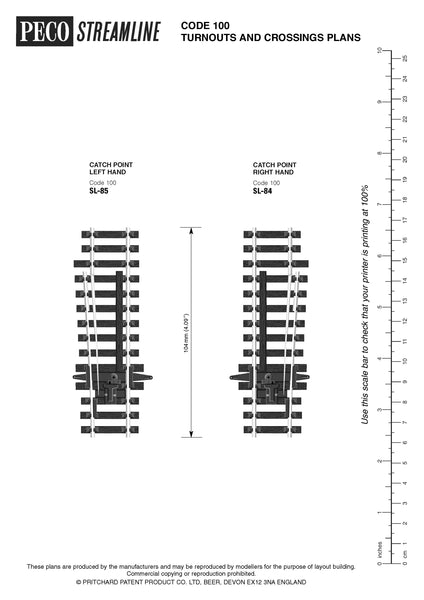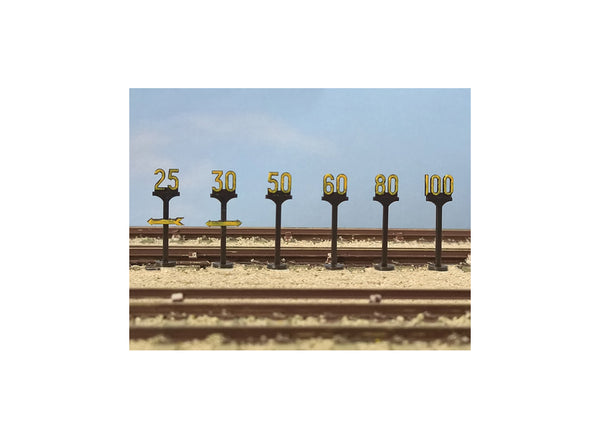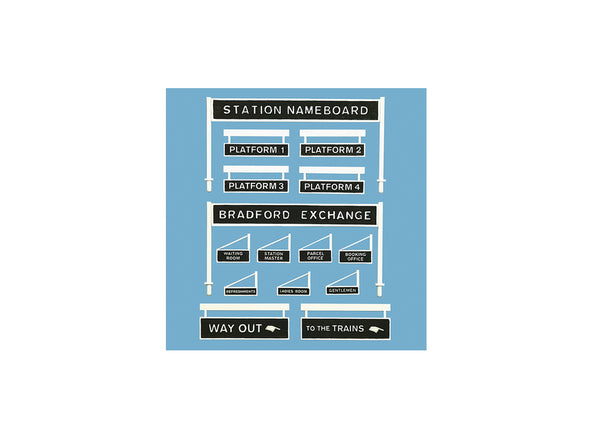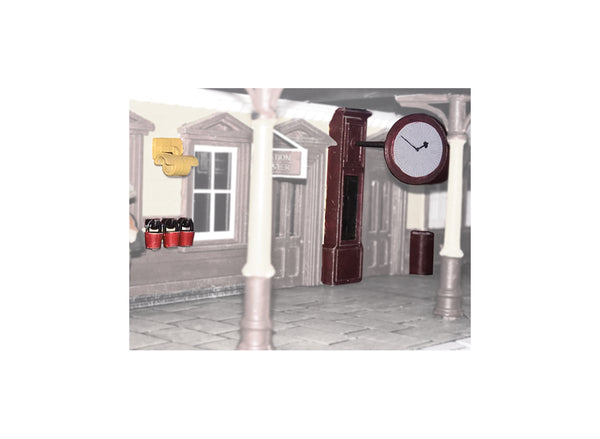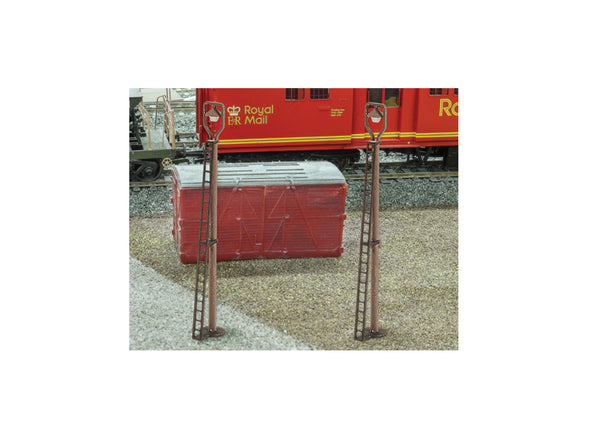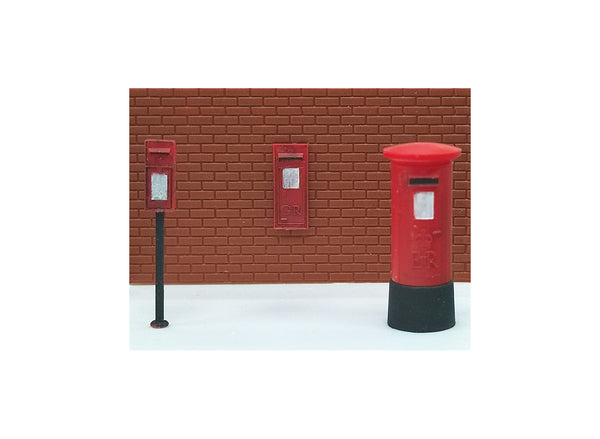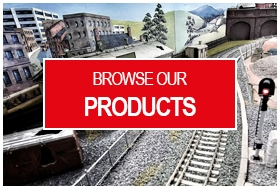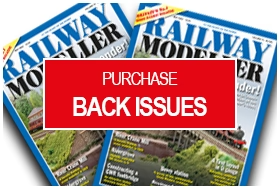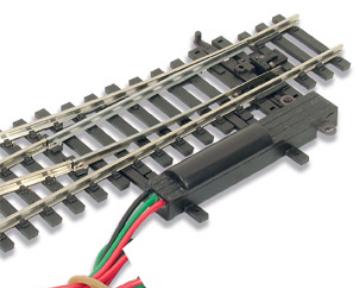BROWSE PECO PRODUCTS
Browse through our complete product portfolio.
1059 Products Found
French Lozenge-style Tiles
These sheets are invaluable for scratchbuilding, saving many hours of repetitive work creating the various surface patterns and textures. They are the same as those used in the Craftsman kits to make extension work easier. Each pack contains 4 sheets 130mm x 75mm of injection moulded styrene approximately 2mm thick, making them rigid enough to be self supporting.
Parkside OO - 4-Wheel Oil Tank Wagon Kit
These kits have been transferred over to Parkside from the PECO "Wonderful Wagons" range, a long-standing favourite kit of modellers for many years. Back then these kits were pre-coloured and decorated, but we have overhauled the kits, added an NEM pocket (so modellers can easily fit a coupler of their choice - although the kit is supplied with a set of tension-lock couplers) and now supply the kits with either a set of milk company decals (PC91) or oil company decals (PC92). The decals provide a whole lot more detail than previously applied to the original pre-decorated kits.
Parkside OO - 4-Wheel Milk Tank Wagon Kit
These kits have been transferred over to Parkside from the PECO "Wonderful Wagons" range, a long-standing favourite kit of modellers for many years. Back then these kits were pre-coloured and decorated, but we have overhauled the kits, added an NEM pocket (so modellers can easily fit a coupler of their choice - although the kit is supplied with a set of tension-lock couplers) and now supply the kits with either a set of milk company decals (PC91) or oil company decals (PC92). The decals provide a whole lot more detail than previously applied to the original pre-decorated kits.
PECO Streamline OO/HO Transition Track Code 83/Code 70
PECO Streamline transition track for connecting Code 83 and Code 70 track.
Whilst our HO Code 83 track is perfect for modelling American mainlines, this new Code 70 track is just right for secondary lines, lightly-used branches, sidings, etc. Indeed, it will be perfect for modelling the early-to-mid 20th century railroading era when lighter rail was more commonly used. Featuring accurate rail spike detail, correctly proportioned ties (sleepers) and nickel silver rail, this new flexible track has been produced to the same high standard that modellers have come to expect from PECO and confirms to the specifications laid down by the NMRA.
Code 70, No.6 Turnout Left Hand, Unifrog
Whilst our HO Code 83 track is perfect for modelling American mainlines, this new Code 70 track is just right for secondary lines, lightly-used branches, sidings, etc. Indeed, it will be perfect for modelling the early-to-mid 20th century railroading era when lighter rail was more commonly used. Featuring accurate rail spike detail, correctly proportioned ties (sleepers) and nickel silver rail, this new flexible track has been produced to the same high standard that modellers have come to expect from PECO and confirms to the specifications laid down by the NMRA..
Code 70, No.6 Turnout Right Hand, Unifrog
Whilst our HO Code 83 track is perfect for modelling American mainlines, this new Code 70 track is just right for secondary lines, lightly-used branches, sidings, etc. Indeed, it will be perfect for modelling the early-to-mid 20th century railroading era when lighter rail was more commonly used. Featuring accurate rail spike detail, correctly proportioned ties (sleepers) and nickel silver rail, this new flexible track has been produced to the same high standard that modellers have come to expect from PECO and confirms to the specifications laid down by the NMRA..
British Railways 13 Ton Steel Body Hopper (LNER)
Over 2,600 of these wagons were built for use on British Railways, between 1949 and 1953. They became synonymous with the North East Region, where coal drop staithes were commonly provided in the station goods yard, so a bottom-discharge hopper was the obvious type to use. Although intended for transporting coal, in later life they became more nomadic around the UK and were used for carrying other materials such as stone and sand. The last examples lingered in service until the early 1980s.
SR Wagon Tarpaulin
LNER Wagon Tarpaulin
LMS Wagon Tarpaulin
GWR Wagon Tarpaulin
BR Wagon Tarpaulin
Turnout, 6th Radius, Left Hand, Unifrog
83 Line items are realistic models of North American railroad track, with Code 83 nickel silver rail. Scaled from A.R.E.A. drawings and NMRA compliant, Code 83 features authentic tie sizes and spacing, the standard American number system for frog geometry, plus a very fine representation of traditional rail spike fixings. For more details on Electrofrog turnouts, see our Wiring the Layout publications Nos 4 and 21.
Unifrog Turnout, 6th Radius, Right Hand
83 Line items are realistic models of North American railroad track, with Code 83 nickel silver rail. Scaled from A.R.E.A. drawings and NMRA compliant, Code 83 features authentic tie sizes and spacing, the standard American number system for frog geometry, plus a very fine representation of traditional rail spike fixings. For more details on Electrofrog turnouts, see our Wiring the Layout publications Nos 4 and 21.
Tactile Paviors
These sheets are invaluable for scratchbuilding, saving many hours of repetitive work creating the various surface patterns and textures. They are the same as those used in the Craftsman kits to make extension work easier. Each pack contains 4 sheets 130mm x 75mm of injection moulded styrene approximately 2mm thick, making them rigid enough to be self supporting.
Slate Walling
These sheets are invaluable for scratchbuilding, saving many hours of repetitive work creating the various surface patterns and textures. They are the same as those used in the Craftsman kits to make extension work easier. Each pack contains 4 sheets 130mm x 75mm of injection moulded styrene approximately 2mm thick, making them rigid enough to be self supporting.
ARP Signal Box
These specially reinforced ARP (Air Raid Precautions) signal boxes featured substantial construction, primarily to protect the locking room gear from bomb blasts during air raids in World War II. A number of similar signal box designs were still to be found around the rail network until quite recently, due to them being difficult to demolish!
The 554 includes all moulded parts required which are produced to a high standard and in base colours. Kit requires painting and light weathering to create the signal box pictured above.
Highland Railway Signal Box
A accurately laser cut wood kit supplemented by injection moulded roof. Glue and paints required to complete model.
Royal Mail Sacks - Red
Red Royal Mail sacks piled up awaiting delivery.
Size approx (mm) L55 x W28 x H13. The Harburn Hamlet range of painted resin accessories provide interesting scenic details for your layout.
Security Gate Kit
This kit contains two barriers, open and closed, plus floodlights, CCTV and some palisade fencing, everything is included to make a convincing and practical feature for a warehouse or maintenance shed entrance. Using pre-coloured moulded plastic parts the kit is easy to build, and further painting will enhance the model too.
Seated People
Pack contains 5 standing people for all OO scenes. Each pack contains 5 different characters all hand painted.
Standing People
Pack contains 5 standing people for all OO scenes. Each pack contains 5 different characters all hand painted.
Garden Buildings and Accessories
This kit comprises mostly of plastic injection moulded parts, plus a laser cut wooden sprue containing the lawnmower and roller. The kit contains: Greenhouse, Conservatory, Garden Shed, Garden Seat, Cold Frames, Water Butt, Wheelbarrow, Lawnmower, Lawn Roller, and 330mm of Larch-Lap Fencing with gate.
70 Line Flexible Track, Wooden Sleeper
Whilst our HO Code 83 track is perfect for modelling American mainlines, this new Code 70 track is just right for secondary lines, lightly-used branches, sidings, etc. Indeed, it will be perfect for modelling the early-to-mid 20th century railroading era when lighter rail was more commonly used. Featuring accurate rail spike detail, correctly proportioned ties (sleepers) and nickel silver rail, this new flexible track has been produced to the same high standard that modellers have come to expect from PECO and confirms to the specifications laid down by the NMRA..
Platform Accessories Modern Era
This new kit brings the range of platform accessories into contemporary times. A ticket kiosk, information and timetable boards, a ticket machine, ticket barriers, and CRT screens are all represented in this comprehensive kit. Moulded in red plastic, the models are easy to assemble, and painting would be necessary to bring out the detail. Suitable for all regions in the UK, the models nevertheless recall memories of "Network South East" of the 1980s!
Leyland Olympian Double Decker Bus, Blackpool Corporation
The Leyland Olympian entered service with the National Bus Company (N.B.C.) in 1981, as a replacement for the Bristol VRT. Shortly after this, Olympians entered service with many provincial operators. London Transport ordered its' first batch in 1984.
Initial batches of the Olympian featured a Leyland chassis, powered by a Gardner 6 LXB engine with an Eastern Carriage Works (E.C.W.) body. Later batches used a Leyland built body and those produced more recently had an Optare built body. Outwardly these three bodies are basically identical and this kit is based on this type of Olympian.
They were exported to Greece, Hong Kong, the USA, Canada and Singapore. Kit contains pre-coloured parts and transfers; requires glue and detail painting to complete.
Leyland National Single Decker Bus, Green Vari-kit
The Leyland National bus was built in Workington, Cumbria, between 1972 and 1985, this project being a collaboration between British Leyland and the National Bus Company. It was a successful venture, with thousands built, and also exported to many countries around the world, including Australia, the Netherlands, Jamaica, Trinidad & Tobago, and the largest export shipment, 450 buses to Venezuela! Very few remain in service in the UK, but over 100 are preserved. Another interesting fact, and a railway one, is that the bus body design, and components, were adapted to be used in the British Rail Class 141, 142 and 155 diesel multiple units. Kit contains pre-coloured parts and transfers; requires glue and detail painting to complete.
Leyland National Single Decker Bus, Red Vari-kit
The Leyland National bus was built in Workington, Cumbria, between 1972 and 1985, this project being a collaboration between British Leyland and the National Bus Company. It was a successful venture, with thousands built, and also exported to many countries around the world, including Australia, the Netherlands, Jamaica, Trinidad & Tobago, and the largest export shipment, 450 buses to Venezuela! Very few remain in service in the UK, but over 100 are preserved. Another interesting fact, and a railway one, is that the bus body design, and components, were adapted to be used in the British Rail Class 141, 142 and 155 diesel multiple units. Kit contains pre-coloured parts and transfers; requires glue and detail painting to complete.
Leyland National Single Decker Bus, Blackpool
The Leyland National bus was built in Workington, Cumbria, between 1972 and 1985, this project being a collaboration between British Leyland and the National Bus Company. It was a successful venture, with thousands built, and also exported to many countries around the world, including Australia, the Netherlands, Jamaica, Trinidad & Tobago, and the largest export shipment, 450 buses to Venezuela! Very few remain in service in the UK, but over 100 are preserved. Another interesting fact, and a railway one, is that the bus body design, and components, were adapted to be used in the British Rail Class 141, 142 and 155 diesel multiple units. Kit contains pre-coloured parts and transfers; requires glue and detail painting to complete.
Leyland National Single Decker Bus, Greater Manchester
The Leyland National bus was built in Workington, Cumbria, between 1972 and 1985, this project being a collaboration between British Leyland and the National Bus Company. It was a successful venture, with thousands built, and also exported to many countries around the world, including Australia, the Netherlands, Jamaica, Trinidad & Tobago, and the largest export shipment, 450 buses to Venezuela! Very few remain in service in the UK, but over 100 are preserved. Another interesting fact, and a railway one, is that the bus body design, and components, were adapted to be used in the British Rail Class 141, 142 and 155 diesel multiple units. Kit contains pre-coloured parts and transfers; requires glue and detail painting to complete.
Leyland Olympian Double Decker Bus, London Buses Metro
The Leyland Olympian entered service with the National Bus Company (N.B.C.) in 1981, as a replacement for the Bristol VRT. Shortly after this, Olympians entered service with many provincial operators. London Transport ordered its' first batch in 1984.
Initial batches of the Olympian featured a Leyland chassis, powered by a Gardner 6 LXB engine with an Eastern Carriage Works (E.C.W.) body. Later batches used a Leyland built body and those produced more recently had an Optare built body. Outwardly these three bodies are basically identical and this kit is based on this type of Olympian.
They were exported to Greece, Hong Kong, the USA, Canada and Singapore. Kit contains pre-coloured parts and transfers; requires glue and detail painting to complete.
Bullhead OO Gauge Buffer Stop - Rail built
Most buffer stops of the period prior to the 1970s were constructed from spare bullhead rail and these new mouldings contain plenty of detail such as bolt heads and the bullhead profile of the rail. The design has also accounted for the option of an alternative buffer for EM gauge.
There are enough parts in the kit for two buffer stops. Designed to clip onto the bullhead rail profile, this easy-to-assemble kit will be simplicity itself to install.
Leyland Olympian Double Decker Bus, London Buses Riverside
The Leyland Olympian entered service with the National Bus Company (N.B.C.) in 1981, as a replacement for the Bristol VRT. Shortly after this, Olympians entered service with many provincial operators. London Transport ordered its' first batch in 1984.
Initial batches of the Olympian featured a Leyland chassis, powered by a Gardner 6 LXB engine with an Eastern Carriage Works (E.C.W.) body. Later batches used a Leyland built body and those produced more recently had an Optare built body. Outwardly these three bodies are basically identical and this kit is based on this type of Olympian.
They were exported to Greece, Hong Kong, the USA, Canada and Singapore. Kit contains pre-coloured parts and transfers; requires glue and detail painting to complete.
Leyland National Single Decker Bus, London Country
The Leyland National bus was built in Workington, Cumbria, between 1972 and 1985, this project being a collaboration between British Leyland and the National Bus Company. It was a successful venture, with thousands built, and also exported to many countries around the world, including Australia, the Netherlands, Jamaica, Trinidad & Tobago, and the largest export shipment, 450 buses to Venezuela! Very few remain in service in the UK, but over 100 are preserved. Another interesting fact, and a railway one, is that the bus body design, and components, were adapted to be used in the British Rail Class 141, 142 and 155 diesel multiple units. Kit contains pre-coloured parts and transfers; requires glue and detail painting to complete.
Leyland National Single Decker Bus, London Transport
The Leyland National bus was built in Workington, Cumbria, between 1972 and 1985, this project being a collaboration between British Leyland and the National Bus Company. It was a successful venture, with thousands built, and also exported to many countries around the world, including Australia, the Netherlands, Jamaica, Trinidad & Tobago, and the largest export shipment, 450 buses to Venezuela! Very few remain in service in the UK, but over 100 are preserved. Another interesting fact, and a railway one, is that the bus body design, and components, were adapted to be used in the British Rail Class 141, 142 and 155 diesel multiple units. Kit contains pre-coloured parts and transfers; requires glue and detail painting to complete.
Corn Stooks Traditional (5)
Pack of 5. The Harburn Hamlet range of painted resin accessories provide interesting scenic details for your layout.
Corn Stooks Traditional (2)
Pack of 2. The Harburn Hamlet range of painted resin accessories provide interesting scenic details for your layout.
Speed Restriction Signs BR
Pack contains 4 each of 25, 30, 50, 60, 80 and 100 mph plus optional directional arrows. Simple painting may be required.
Station Nameboards and Platform Signs
Pack contains 2 each of the following signs: Way Out, To The Trains, Station Master, Booking Office, Parcel Office, Waiting Room, Refreshments, Gentlemen, Ladies Room, Platform 1, Platform 2, Platform 3, Platform 4, and Running in Boards with 8 sets of the alphabet to make up the desired station name. Painting is required.
Platform Accessories Steam Era
Pack contains simple kits to make 1 large Station Clock, 1 Litter Bin, 3 Fire Buckets and Rack, 4 Tannoy Speakers. Painting is required for realism.
Post Boxes
Pack contains simple kits to make 6 Post Boxes; 2 Pillar, 2 Post Mounted, 2 Wall Mounted. Simple painting is required for realism
